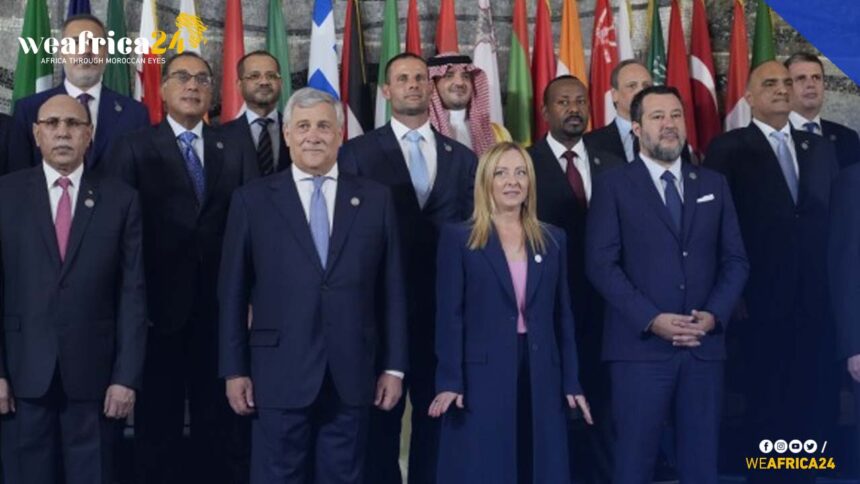The international community turned its attention to the pressing issue of irregular migration between Europe and Africa during the Rome International Conference on Irregular Migration held on Sunday. The conference, led by Italian Prime Minister Giorgia Meloni, brought together leaders from both continents to address the escalating concerns surrounding this complex and urgent matter.
Giorgia Meloni, the Italian Prime Minister, expressed grave concerns over criminal organizations exploiting migrants for profit. She emphasized the need to focus on developing Africa, particularly the countries from which the migrants originate. By improving living conditions and providing viable opportunities in these nations, the hope is to create an environment that discourages individuals from resorting to irregular migration.
President Qais Saied of Tunisia firmly voiced his stance against accepting the return of a “slave trade” through irregular migration. He emphasized that Tunisia would not tolerate hidden localization of migrants, refusing to become a transit point or safe haven for those operating outside the law. President Saied stressed the importance of finding sustainable solutions that address the root causes of irregular migration and protect the dignity and well-being of migrants.
Mauritanian President Mohamed Ould Ghazouani shared the grim reality of his country hosting over 100,000 illegal migrants. To address the situation, he stressed the necessity of enhancing border surveillance to contain irregular migration waves. Additionally, President Ghazouani acknowledged that irregular migration adversely affects the development prospects of countries of origin, emphasizing the need for collective efforts to tackle this humanitarian challenge.
European Commission President Ursula von der Leyen highlighted the significance of respecting the values of solidarity, sovereignty, and burden-sharing in combating irregular migration. She emphasized the mutual interest between Europe and Tunisia to invest in the North African nation’s development sectors. Furthermore, President von der Leyen revealed ongoing efforts to invest in clean energy in countries bordering the Mediterranean Sea, a step towards sustainable development and economic growth.







